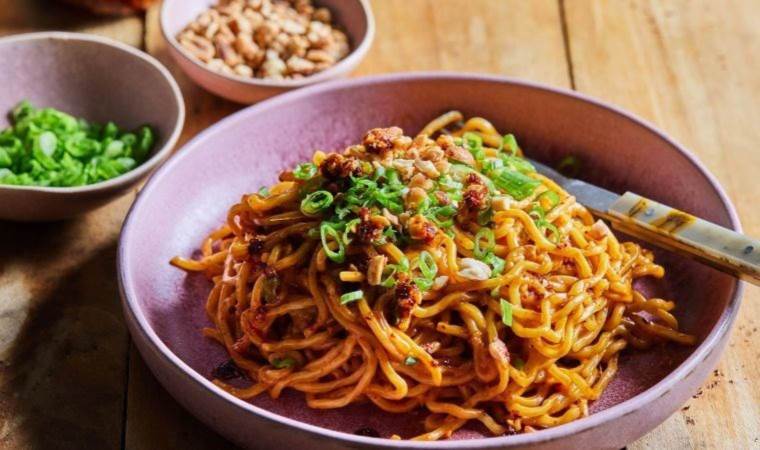Denmark pulls noodles off the shelves: 'Too spicy'
Denmark has decided to recall noodle products imported from South Korea, which are said to be 'very bitter'. Authorities warned that these products could cause acute poisoning in consumers.

In Denmark, it has been announced that noodles from South Korea will be pulled from the shelves because they are 'too spicy'. While the announcement was met with derision by many, there may be a real safety risk.
EXCESSIVE SPICE WARNING
Danish authorities have halted the sale of three popular South Korean noodles, warning that they are spicy and hot enough to hospitalize consumers. According to the Korea Times, Denmark's National Food Institute has warned Danes not to consume three widely sold products made by South Korean brand Samyang.
"The National Food Institute has assessed the total capsaicin levels in a single package of all three noodle products: '3xSpicy & Hot Chicken', '2xSpicy & Hot Chicken' and 'Hot Chicken Stew' to be high enough to put the consumer at risk of developing acute poisoning," the statement said.
Capsaicin, an active ingredient in chili peppers, is also the reason why peppers are so hot. The institute advised parents to call a poison hotline if their child shows bad effects after eating noodles. However, "there is no need to worry if your child has not shown symptoms of acute poisoning after eating chili peppers," it said.
'DENMARK HAS A LOW SPICE TOLERANCE' It is not yet clear what triggered the decision to pull the products from the shelves. An official from Samyang Foods told the Korea Times that they will investigate the matter."It appears that Danish food authorities initiated the recall out of concern that excessive seasoning could cause problems, not because of any quality issues with the product," the company said in a statement. We plan to closely review Danish regulations and respond to the recall accordingly."Social media users greeted the decision with derision.Amusing comments about Denmark's low tolerance for spices rocked social media.
Some users commented that cardamom, a strong but not bitter herb, was 'probably too bitter for most Danes' palates'.
The Scandinavian palate has previously been used as a source of amusement by the leaders of various countries.
EDIBLE DIPLOMACY
In 2005, French President Jacques Chirac was overheard joking about the quality of British cuisine during a trilateral meeting with Russian President Vladimir Putin and German Chancellor Gerhard Schröder, causing a minor crisis between the countries.
The French magazine Liberation quoted Chirac as saying, "You can't trust people who cook so badly.After Finland, this is the country with the worst food." The revelation of these comments, which were supposed to remain confidential, also ruined France's chances of hosting the Olympics.At the time, France was competing with the UK for the chance to host the 2012 Olympics and the panel appointed by the International Olympic Committee to make the decision included two Finns.While the Games were ultimately decided to be held in London, Paris had to wait 12 years for its next chance.
WHAT HAPPENED?
Chirac was not the only leader to cast a shadow over Finland's food culture. Former Italian Prime Minister Silvio Berlusconi said at an EU summit in 2002 at the founding of the European Food Safety Authority that it would be absurd for the agency to be based in Finland because "Finns don't even know what prosciutto is".He also mocked the fact that Finnish cuisine was dominated by "marinated reindeer" (a dish not commonly consumed in Finland), describing it as something "endured" on a diplomatic visit.
In 2008, the Finns took their revenge with a pizza developed by the Finnish restaurant chain Kotipizza called "Berlusconi", consisting of red onion, mushrooms and smoked reindeer on a whole wheat and rye flour base. At the time, the Italian newspaper Corriere della Sera described the pizza as "innovative and very tasty", but it was clear that they suspected the name might be an attempt at revenge.
In the end, while Helsinki and Parma competed to host the EU's prestigious food agency, it was the Italian city known for its prosciutto that won.

